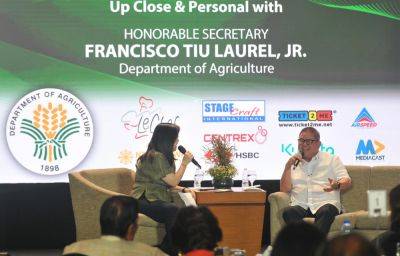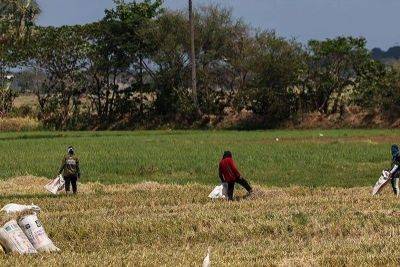Smart agriculture
Agriculture in tiny Taiwan, with its land area of nearly 36,200 square kilometers just over a tenth that of the Philippines, will make the P20-a-kilo rice administration drool with envy.
Taiwan is 100 percent sufficient in rice, with a six-month buffer.
Because of its commitments with the World Trade Organization, however, Taiwan still imports rice, adding to its surplus, which it uses to produce processed items such as rice wine, rice cakes and crackers.
Their rice variety is premium and pricey. Taiwan doesn’t export its rice, but it donates its surplus to friendly countries including the Philippines. Any rice stock that is not consumed within three years is used as animal feed.
Taiwanese agriculture defies the economies of scale. Visiting the Ministry of Agriculture in Taipei last week, I learned that the typical Taiwanese rice farmer has only about a hectare of land, while there are many small-scale producers of a wide variety of other agricultural items. But through innovative technology, smart agriculture practices and government support that goes beyond rhetoric, Taiwanese farm production is among the highest in the world.
Apart from having a rice surplus, Taiwan is 90 percent self-sufficient in fruits and vegetables, according to Lih-Fang Lin, director general of the ministry’s Department of International Affairs. Overall national food security is at 31 percent, close to Japan’s 38 percent.
Taiwan is a major producer of the moth orchid, and its tea is world-renowned. Alishan high mountain oolong is my favorite tea. Taiwanese garlic – large, with the taste inferior to our native Ilocos garlic, but at half the price – dominates Philippine markets. Many of those large, smooth, bright red and yellow onions you see in the market are also imported from Taiwan.
For Taiwan, which China has been moving to isolate from the world, food security is one of the top priorities, Lin told journalists who visited the ministry last week.
Under intense economic coercion tactics employed by China, Taiwan has been weaning itself away from the Chinese market, and strengthening partnerships with other countries. The Philippines should also brace for intensified economic coercion






